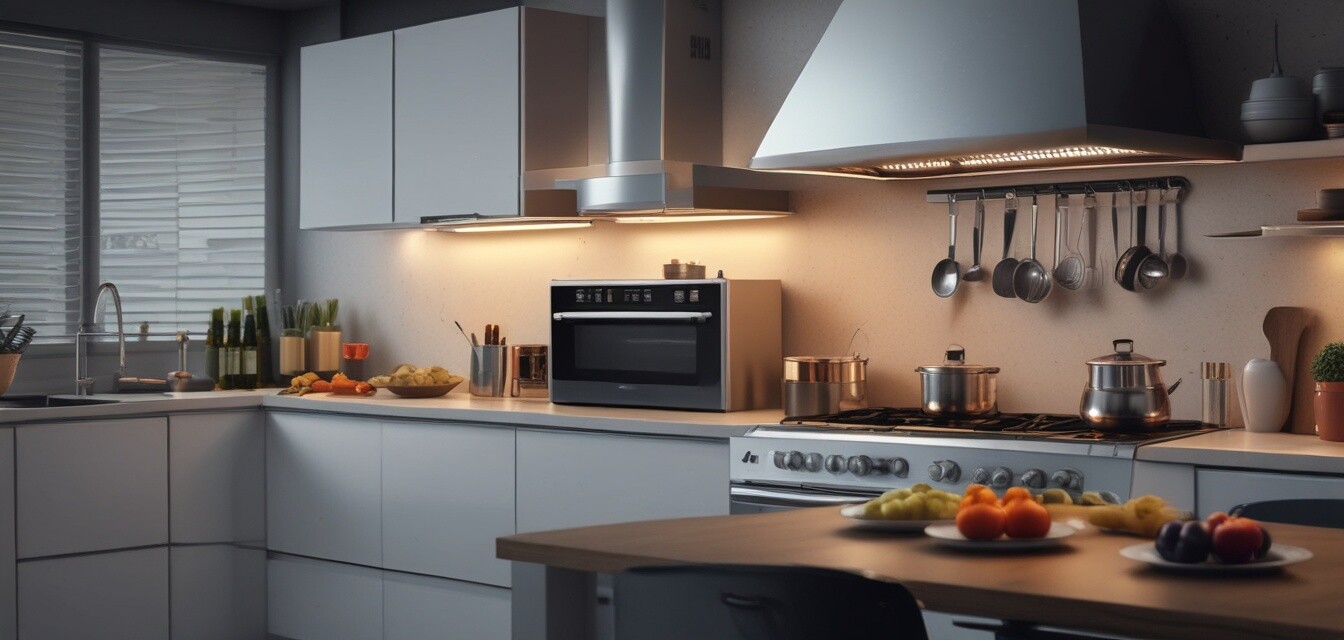
The Integration of AI in Modern Cooking
Key Takeaways
- AI is revolutionizing how recipes are developed and customized for individual tastes.
- Smart appliances reduce cooking time and improve consistency through automated processes.
- AI can assist in inventory management, ensuring ingredients are always fresh and available.
- The culinary world is embracing AI for enhanced creativity and innovation.
- Stay updated on the latest trends in culinary technology and techniques.
In recent years, the culinary landscape has experienced a significant transformation, particularly with the rise of artificial intelligence (AI) in modern cooking. By 2025, the integration of AI into various cooking processes has been nothing short of revolutionary. Not only does it streamline cooking, but it also enhances creativity in the kitchen. This article delves into how AI is reshaping recipe development and cooking techniques, offering cooks at all levels a glimpse into the future of food preparation.
How AI is changing recipe development
Artificial intelligence plays a crucial role in innovating recipes that cater to a wide array of dietary needs and preferences. By analyzing numerous recipes, AI can identify patterns and suggest combinations that might not have been considered before. Here are some notable ways AI is influencing recipe formulation:
- Personalized recipe suggestions: AI algorithms utilize user data to recommend recipes tailored to individual tastes, dietary restrictions, and available ingredients.
- Flavor pairing insights: With extensive databases of ingredients and their flavor profiles, AI predicts complementary ingredients that enhance overall dish quality.
- Dynamic ingredient substitutions: AI suggests alternatives based on available ingredients, reducing food waste and promoting sustainability.
Advantages of using AI in recipe creation
The advantages of employing AI in culinary practices go beyond mere convenience. Here are a few examples:
| Advantage | Description |
|---|---|
| Enhanced Creativity | AI encourages chefs to experiment with new ingredient combinations and techniques. |
| Time Efficiency | Precise cooking times and temperatures can be automated, reducing overall cooking time. |
| Improved Consistency | AI ensures that recipes produce similar results every time, minimizing the variability of the final dish. |
AI in kitchen appliances
Smart kitchen appliances, driven by AI technologies, have become more popular than ever. These innovative tools not only assist in the cooking process but also take meal preparation to the next level. Below are some categories of AI-fueled kitchen appliances:
- Smart ovens: These appliances can adjust cooking times and temperatures automatically based on the recipe and ingredients.
- Smart refrigerators: Equipped with inventory tracking mechanisms that notify users when ingredients are about to expire.
- AI cooking assistants: Voice-activated devices provide step-by-step cooking instructions, tailored recipes, and even troubleshooting assistance.
Benefits of AI-powered kitchen appliances
The advantages of these smart appliances extend to daily cooking routines:
| Benefit | Description |
|---|---|
| Convenience | Hands-free cooking enables multitasking and limits the time spent in the kitchen. |
| Consistency | AI removes guesswork, ensuring every dish is prepared to perfection. |
| Ingredient Tracking | Smart appliances help monitor inventory levels, making grocery shopping more streamlined. |
The future of AI in the culinary world
Looking forward, the culinary field will likely see increased adoption of AI technologies. Here are some anticipated trends:
- AI-driven food waste reduction: Solutions leveraging data to minimize waste through better inventory and recipe planning.
- Expanding flavor algorithms: More sophisticated algorithms that adapt to global cuisines and cultural preferences will emerge.
- Integration with meal kits: AI might customize meal kits according to personal preferences and health requirements.
Stay updated with emerging culinary trends
As the culinary world evolves, it’s essential to keep learning and adapting. For those interested in staying ahead in the kitchen, consider exploring related topics on our blog, such as:
Pros
- Enhances creativity and recipe flexibility.
- Automates processes for consistency in cooking.
- Reduces food waste through better ingredient management.
Cons
- Relies on the availability and accuracy of data inputs.
- High initial investment for smart appliances.
- Potential for over-reliance on technological solutions.
Conclusion
The integration of AI into modern cooking is not merely a trend; it is a fundamental shift in how we approach food preparation and culinary creativity. As technology progresses, cooks—from home chefs to professional culinary artists—stand to benefit from the countless advantages that AI provides. The future of cooking is surely an exciting one, and embracing these advancements may just lead to the creation of the next culinary masterpiece.